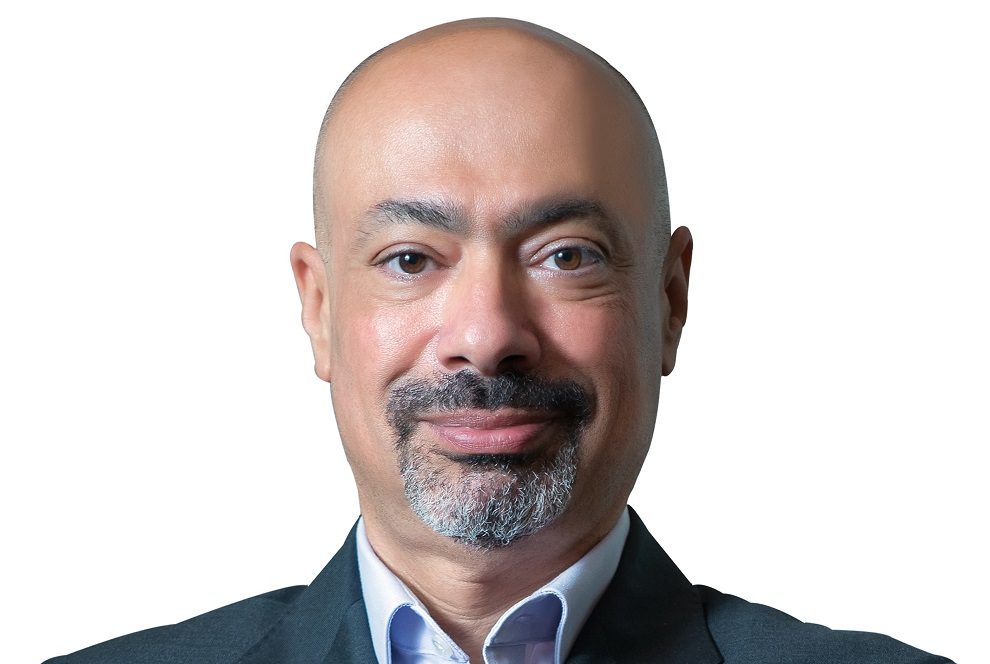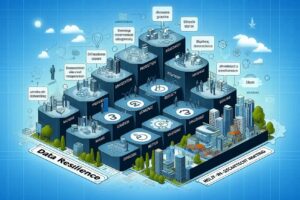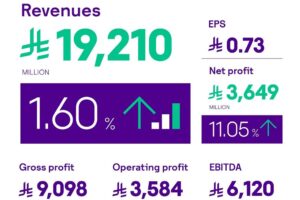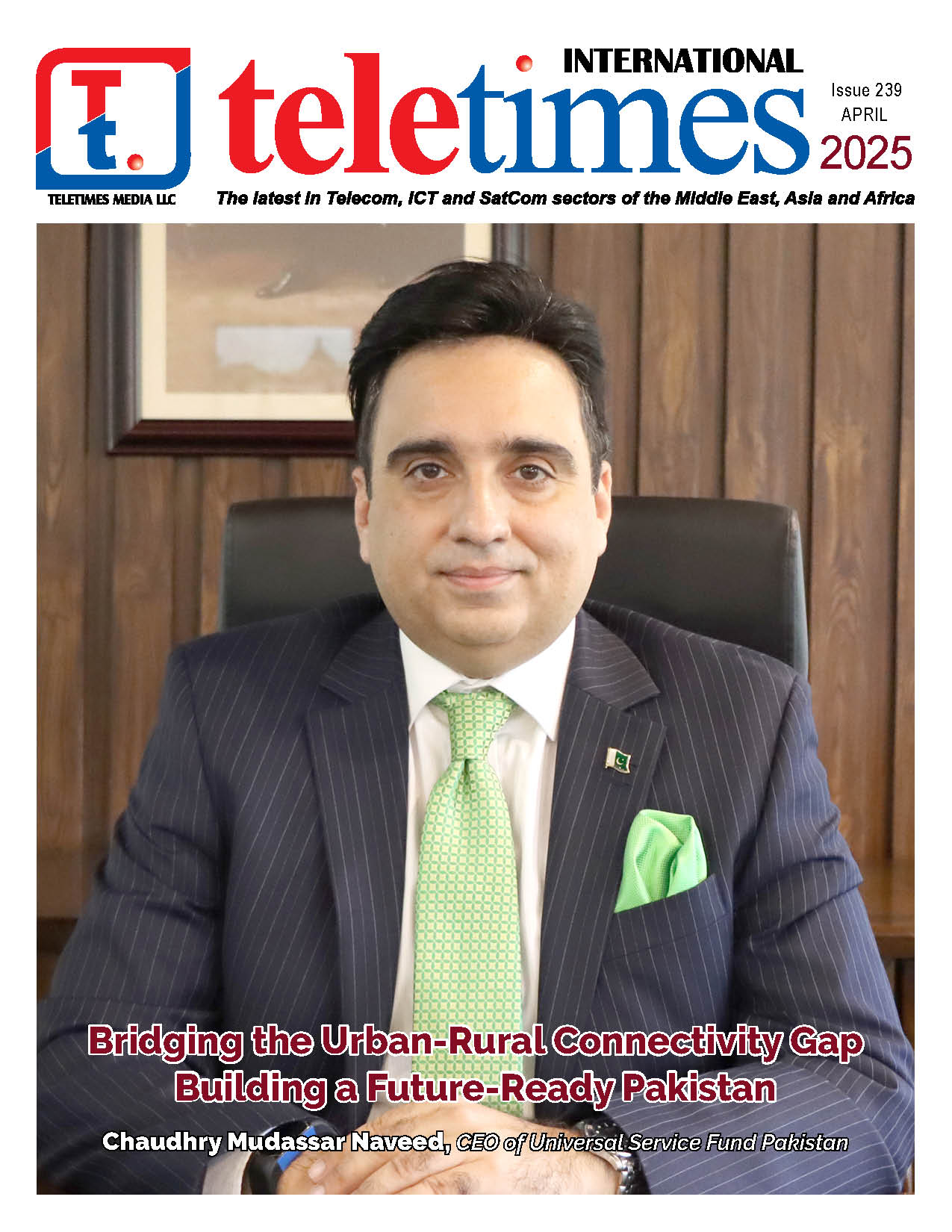e& is set to enthral stand goers at GITEX Global 2022 by inviting them to enter the next digital universe with the soft launch of their virtual world, e& universe. This move marks a significant achievement in the Group’s transformation journey to a global technology and investment conglomerate, as it takes its first steps into the metaverse.
Hatem Dowidar, Group CEO, e& shares his views on why telcos must adopt the metaverse in enhancing customer experience and boosting digitalization journeys of enterprises.
Metaverse technology may be in the early incubation stages, given that it needs high-bandwidth and low-latency communications to work at scale. Still, telcos must consider harnessing its potential for the betterment of lives, whether it is a virtual playground or shopping destination, or even using it as a training ground for smarter, more efficient AI and industrial manufacturing processes. To get it to work at the grand scale we all envision will require robust connectivity solutions. This is where 5G becomes the fulcrum, given that mobile networks may not be able to handle the metaverse network demands.
According to a report by Ericsson, 5G is a critical enabler for the metaverse and its entire ecosystem as it has global reach, including roaming capabilities. For the cloud and edge-cloud (MEC) capabilities of the metaverse, 5G also offers low latency, offload processing and enhanced render level of detail (LOD).
To harness the power of the metaverse, telcos must expand beyond their traditional capabilities and more towards embracing a growth mindset where they are open to exploring innovative ideas. In fact, telcos can play a more prominent role in the metaverse value chain by leveraging emerging technologies such as 5G, edge cloud, analytics and Artificial Intelligence (AI).
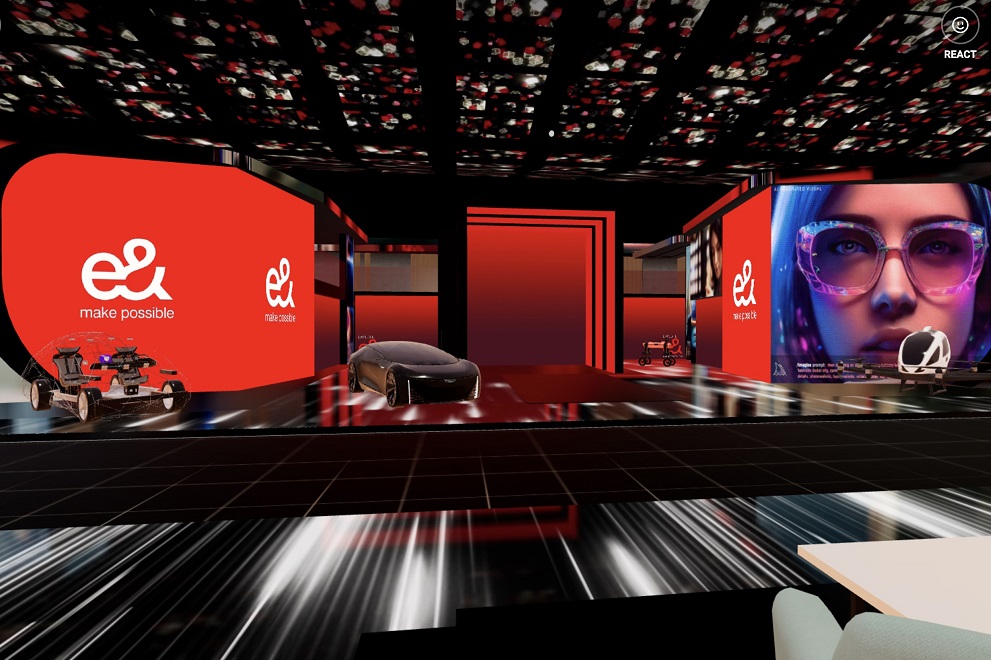
In fact, there are endless opportunities that telcos can level in the metaverse domain such as :
• Cloud computing services – Edge computing is one of the foundational stones in the metaverse, and telcos are in a prime position to provide edge computing services so as to unlock more efficient data transfer, lower the load of network congestion and also add another revenue stream in the process.
• Human interface hardware – Telcos can drive the adoption of augmented reality (AR) and virtual reality (VR) applications used for optimal interaction in the metaverse. These could be through the bundling of VR devices and connectivity services and go further in adopting an end-to-end (E2) device lifecycle management approach.
• Advanced analytics or AI – Now more than ever before, telcos have access to a variety of data points. More so, in the metaverse, they can use these Big Data insights to improve decision-making. The data could also help them in using customer-and operations-related insights to use advanced analytics and AI to bolster revenues.
• Connectivity provider – With the generational shift from 5G to 6G as we approach 2030, this will further the adoption of the metaverse in daily life. Telcos can play a part in addressing network capacity and efficiency-related issues as metaverse requires robust fibre connectivity, which delivers high-bandwidth speeds.
• Metaverse platforms – As the metaverse platforms will evolve from a series of various virtual worlds created individually by companies, there will come a time when a super virtual world will be formed. By investing in emerging metaverse platforms, telcos will have the upper hand in building the in-depth technical expertise required to create the metaverse of the future.
• Cybersecurity, privacy and trust – Individuals and enterprises remain concerned about their digital footprint and data integrity. As data custodians, telcos are seen as a trusted partner by customers in keeping their private data safe. And so, telcos could consider leveraging their current customer relationships and position themselves as ‘identity management experts.’
Telcos will also be required to partner with technology giants, internet tech companies, specialist cloud providers, device manufactures, technology platform providers as well as online game developers so that they can create a partner ecosystem for developing a solid metaverse ecosystem. In that way, telcos can become the orchestrators of the metaverse ecosystems by identifying collaborative opportunities with involved parties.
Based on the limitless possibilities that are available in metaverse adoption and in line with our commitment to digitally empower societies, we are taking a significant step forward into the metaverse this GITEX Global by announcing the launch of e& universe, hosted virtually in Arcadia Planitia on Mars.
Alongside, we have had two other major showcases: the Metaverse Service and etisalat by e&’s business center. The Metaverse Service is a metaverse platform designed to maximize user experience through multiple virtual spaces and avatars. This was a result of the collaboration with SK Telecom, the largest mobile operator in Korea, to explore media and entertainment. Through our third metaverse showcase, etisalat by e&’s business center showcase is in collaboration with Huawei, where e& is demonstrating the future of retail using a 3D retail experience in an innovative way.
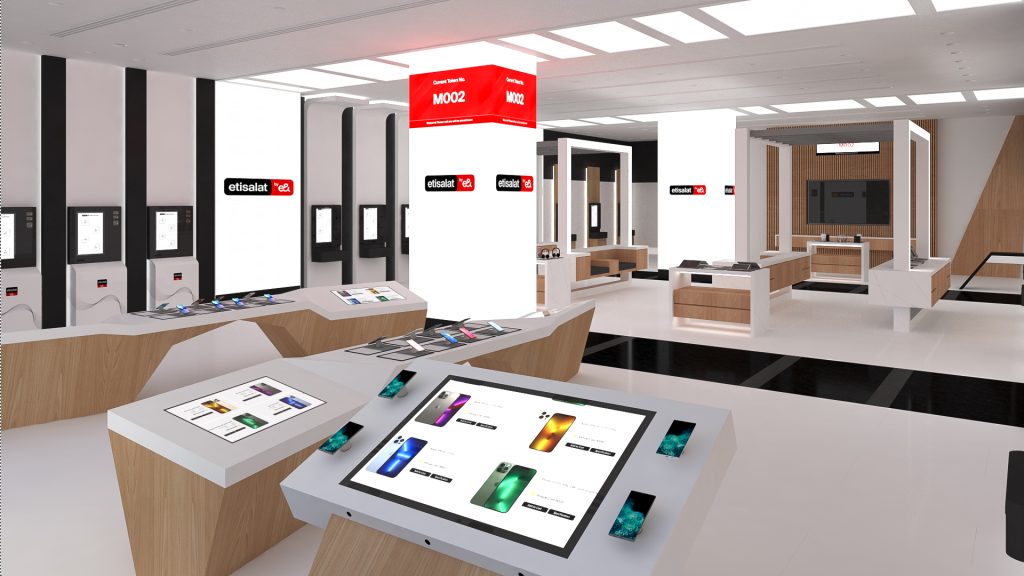
e& universe is going to revolutionize customer experience and empower users with opportunities to traverse both the virtual and physical worlds. Here’s why
With the launch of e& universe, hosted virtually on Mars, specifically in Arcadia Planitia, we are taking our first steps into the metaverse. Scientific research indicates that Arcadia Planitia is a location most suitable for future life on Mars. According to NASA, it is one of the few regions where abundant shallow ice is present at relatively low latitude.
The launch of e& universe is in partnership with HTC, the leading manufacturer or virtual reality and mobile devices. Visitors can virtually visit e&’s stand at GITEX Global 2022 and for the very first time in the history of GITEX, can view technology showcases.
The next phase of this project is set to enthrall users with the opportunity to purchase digital assets, watch virtual concerts and sporting events, purchase non-fungible tokens (NFTs), and many other digital experiences that are set be the first in the country and the region.
Our other showcase at GITEX Global is Metaverse Service, a metaverse platform designed to maximize user experience through diverse virtual spaces and avatars
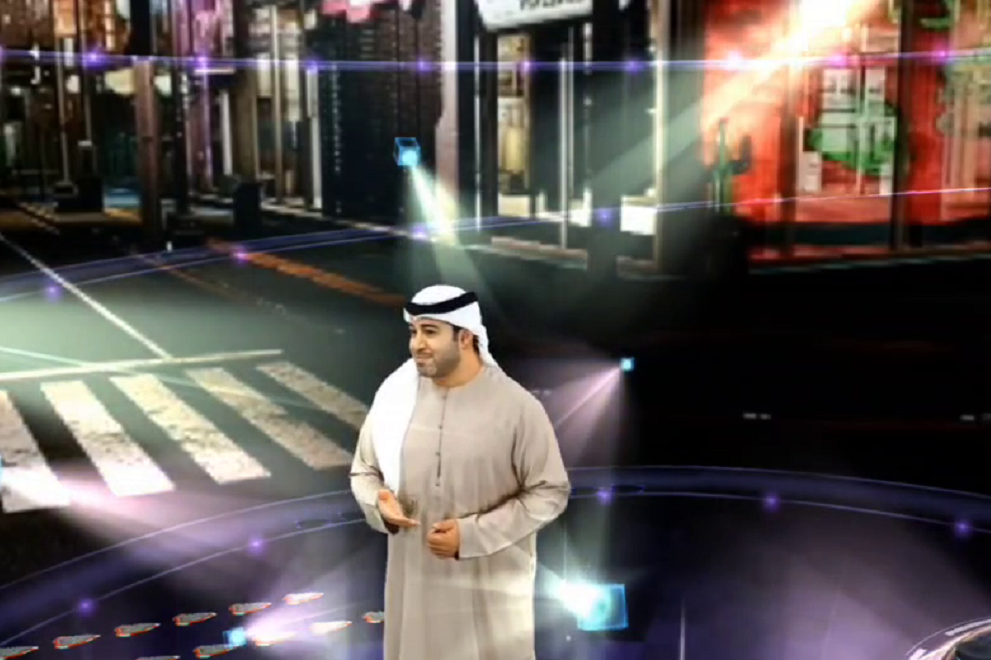 The Metaverse Service was a result of the collaboration with SK Telecom, to enhance user experiences through multiple virtual spaces and unique avatars in addition to exploring opportunities for social networking in the metaverse. This platform provides the opportunity to visit the exclusive exhibition of e& NFTs alongside special artworks by international artists, and listen to famous K-pop music, poems, and various entertainment shows available in the world of metaphysics through virtual and augmented reality technologies available on the platform.
The Metaverse Service was a result of the collaboration with SK Telecom, to enhance user experiences through multiple virtual spaces and unique avatars in addition to exploring opportunities for social networking in the metaverse. This platform provides the opportunity to visit the exclusive exhibition of e& NFTs alongside special artworks by international artists, and listen to famous K-pop music, poems, and various entertainment shows available in the world of metaphysics through virtual and augmented reality technologies available on the platform.
Our third showcase at GITEX Global is etisalat by e&’s business center showcase where we are demonstrating the future of retail using metaverse technologies
This is an advanced metaverse showcase presented by etisalat by e& in collaboration with Huawei, providing a digital 3D retail experience of the company’s business center in an innovative way. Visitors can experience a real-life customer journey by using VR devices. They can also access the services and products offered by tracking the hands movement or through voice commands. This indicates how the benefits of the metaverse in taking customer experiences to a whole new level, where customers can connect and use digital services in real time and through the use of high-speed 5G network with very low latency.
I envision that the metaverse will offer a transcending experience to users and businesses. The vision is based on our firm belief in capitalizing on the opportunities that next-generation technologies offer to empower a brighter, digital future for all.
When we speak about our commitment to offering customer experiences that transcend everything they have experienced before, we are not only showcasing how technologies can digitally empower societies. We are looking at how we can design deeper levels of personalization beyond anything we have done before, whether it be customer experience, a user journey, or retail purchases. Harnessing the potential of the metaverse will certainly become the pivot that accelerates our progress to the next frontier of the digital realm. It is a world we are still exploring, and there’s so much untapped potential, since the metaverse has already shown demonstrated multiple possibilities to transform the world of technology.
What makes the journey into the metaverse exciting is the use of next-generation technologies such as Web 3.0, VR, AR, ubiquitous 5G high-speed internet, Blockchain, Crypto, NFTs, and others, backed by the remote working or hybrid working models that the world has adopted these past few years.
Apart from immersive experiences for individuals, there are multiple opportunities for entrepreneurs and technology companies to capitalise on as they enter the metaverse. Gartner predicts that by 2026, 25% of people will spend at least one hour a day in the metaverse for work, shopping, studying, and socializing. When it comes to experiences, games, concerts and other entertainment activities can offer additional revenue opportunities for talent. As for streaming entertainment, users could have a new medium for consuming entertainment when content aggregators start to create content meant for the metaverse.
Travel opens up several possibilities as it is in this realm that the metaverse goes beyond the physical and temporal boundaries and users can embark on a virtual trip to destinations they would like to visit in person at a later date. Moreover, online shopping experiences in retail could become much more realistic with the metaverse-ready body suits and innovative user interface devices, from the comfort of one’s home.
TechRepublic, an online trade publication for IT professionals, has reported that 91% of organizations are planning to use metaverse technologies over the next few years, where 60% use VR/AR for production optimization, 53% use metaverse technologies for enhancing customer care and 26% for corporate training.
We believe that the future is about unlocking creativity, exploring immersive experiences and storytelling, as well as building a new world. The partnerships we are making in the metaverse also give us a platform to enable our audiences to interact in unique ways. At the same time, the metaverse allows creators the freedom to set up environments where they can meet, unite and customize content for their specific viewers.
Metaverse technologies will also be embraced beyond retail and travel in the areas of home, offices and in the communities.
According to the investment bank Citi, currently, the metaverse represents a potential USD 8 trillion to USD 13 trillion opportunities by 2030, that could boast as many as 5 billion users, including a mobile phone user base.
Homes of the future could become a metaverse where families and friends from across the world can tune in digitally and physically to share great moments and occasions. Already, gamers are accessing the world of virtual gaming through headsets and other such simulators. In the future, game consoles could be moved to the cloud to render impactful graphics in real time.
Meeting rooms on the office premises rooms could evolve into ‘immersive’ rooms, while cubicles in the physical realm could be linked via AR portals to create multi-purpose spaces, whether it is for supporting hybrid working models or engineering projects such as digital twins.
Extended technologies (XR) will be used at hospitals and caregiving clinics to improve the patient’s quality of life through immersive experiences. With the use of either avatars or teleoperated equipment, caregivers can continue to work remotely and interact with their patients, ultimately improving patient care.
Academic institutions could see a more immersive and cost-effective way to hold practical training sessions and classes where virtual equipment is used.
When it comes to AI and metaverse, the UAE has a strong and clear vision and strategy. These next-generation technologies will play a role in boosting the socio-economic development of the country.
With the AI strategy, the UAE aims to become the world leader in AI by 2031 in alignment with the UAE Centennial 2071. The country’s vision includes creating massive socio-economic growth, becoming a knowledge economy and generating up to AED 335 billion in extra growth. $120 billion is the anticipated contribution of AI to the economic growth of the UAE by 2030.
In addition to having the world’s first AI Minister, the UAE government has taken the lead even in establishing the world’s first graduate-level AI university in Abu Dhabi, the Mohamed bin Zayed University of Artificial Intelligence (MBZUAI), empowering students and businesses to advance AI in all aspects of life. In late July 2022, Dubai announced it was looking to shape the future of AI by setting up the Higher Committee for Future Technology and Digital Economy, focused on investments in the metaverse and establishing strategic partnerships. This followed the launch of the Dubai Metaverse Strategy, which aims to foster innovation and application of new-age technologies, ensuring the metaverse increases its contribution to 1% of the Emirate’s overall GDP. The strategy will also see the increased contribution of the metaverse sector to the Dubai’s economy to $4 billion by 2030.
In July 2022, the Dubai government also announced that it is going to take its government into the metaverse to allow users access to services in an integrated network of 3D virtual worlds. The move is set to improve the overall industrial competitiveness as well as efficiency optimizing in a heavily digitalized world we all live in, which will ultimately support the country’s aspirations to diversify the UAE’s economy even further.
Recently both Abu Dhabi and Dubai became the first global cities with a global metaverse launch by UAE-based Metaverse Holdings. The UAE will be the first ‘utilized’ hub within the first virtual world that replicates real-life experiences and places. This is where users worldwide will experience the best attractions and iconic landmarks from the comfort of their homes as the experiences will merge both the physical and digital worlds. The announcement is in line with the UAE government’s mission to advance the adoption of blockchain technology, digital assets and the metaverse across the region.
This year also, the UAE announced the Digital Economy Strategy, which aims to double the contribution of the digital economy to the UAE’s GDP from 11.7% to over 20% within the next ten years. The UAE is among the top 25 % of countries in the most important global digital indicators, where the contribution of the digital economy to the non-oil GDP is 11.7%, and the UAE’s GDP is 9.7%. It is worth noting that the ICT sector has been the driving force in the digital economy.
The UAE has developed the UAE Digital Government Strategy 2025 so as to merge all digital aspects into overall government strategies and integrate them on a national level, which will ensure a world-class digital infrastructure for the UAE. It is in alignment with various national strategies, including the UAE Centennial 2071, UAE Strategy for AI, and Fourth Industrial Revolution (4IR) strategy. In particular, Abu Dhabi Digital Authority was set up to support Abu Dhabi’s digital transformation through various digital services to establish a secure digital government ecosystem in Abu Dhabi. We were privileged to work on the launch of Cyber Eye, with the Abu Dhabi Digital Authority, which is a central part of the Abu Dhabi government cybersecurity strategy. We made a difference by ensuring that a one-of-a-kind technology was employed to identify cyber threats in real-time to further strengthen the security of Abu Dhabi government entities’ digital assets. This initiative will enhance the position of Abu Dhabi and the UAE as an innovation and technology hub.
In late September 2022, the two-day Dubai Metaverse Assembly became a global platform for the metaverse community where the aim was to ideate, develop and deploy a range of innovative technological solutions and next-generation technologies that will impact the quality of life of people around the world. It became the ideal space to boost knowledge-sharing, idea incubation and discuss ways to collaborate even further in addressing pressing challenges that the world faces today.
The UAE has taken great strides in the metaverse and this latest launch from e& into the metaverse highlights our commitment to the vision of the leadership in enhancing the country’s position to the forefront across all global ICT indicators, digital competitiveness and adoption of the most modern and advanced technologies. We are all so privileged to be part of the digital economy journey of this country, as digitalization and, more specifically, the adoption of the metaverse creates additional opportunities for economic growth as well as adds value for our customers and shareholders.


